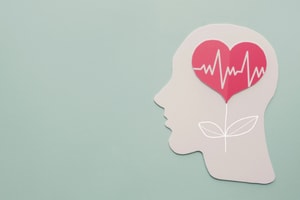How to Be Good to Your Brain
 Brain health has been a focus for many over the past few years. The World Health Organization says that “brain health is an emerging and growing concept that encompasses neural development, plasticity, functioning, and recovery across the life course”. As we know, everyone is different, this includes the brain and brain development. Our brains respond to stress differently and adapt to various situations and continue to modify throughout our lives. Throughout life, our brain health can change but there are ways that we can help our brains continue to function to the best of its ability.
Brain health has been a focus for many over the past few years. The World Health Organization says that “brain health is an emerging and growing concept that encompasses neural development, plasticity, functioning, and recovery across the life course”. As we know, everyone is different, this includes the brain and brain development. Our brains respond to stress differently and adapt to various situations and continue to modify throughout our lives. Throughout life, our brain health can change but there are ways that we can help our brains continue to function to the best of its ability.
Foods to Help Your Brain
There is no one size fits all for your brain and how to keep it healthy but there are foods that can assist with this. These include healthy fruits and vegetables, legumes, and whole grains, all which have their own specific nutrients and benefits. Green, leafy vegetables, such as kale, spinach, and broccoli are full of vitamin K, folate, and beta carotene, which can help slow cognitive decline. Fatty fish are also great sources of omega-3 fatty acids. Omega-3 can help lower levels of protein in the blood that can form damaging clumps, found in those with Alzheimer’s disease. Walnuts also serve as a great source of protein and healthy fat and has a correlation in improved memory. Berries and the flavonoids, the natural plant pigment within them, has proven to improve memory as well. There’s also some good news about your morning tea and coffee! Higher caffeine consumption has been linked to better test scores and mental function. Caffeine also may help solidify new memories. Help your brain by adding in some of these foods to your daily diet!
Activities to Help Your Brain
Now you know how to eat for your brain health but what can you physically or mentally do for your brain. Doing puzzles or crosswords to help your brain by providing mental stimulation. You can also do crafts or math problems as well to stimulate your brain. These activities help your brain make new connections between cells and develop plasticity. Exercise can also help with your brain health by bringing oxygen to your brain to encourage new cells and connects between brain cells. Exercise also helps improve your overall health, lower cholesterol, lower your blood sugar, and reduce your mental stress, all which also can help improve your brain health. Lastly, make those social connections. Social connections may have been put by the wayside with COVID but making social connections can help lower your risk with dementia and lower your blood pressure.
Photo: ©iStock.com/ThitareeSarmkasat